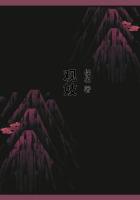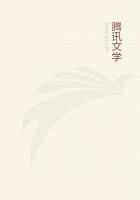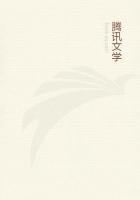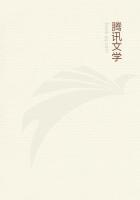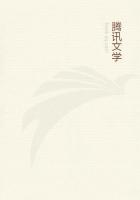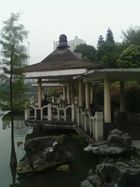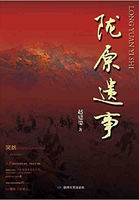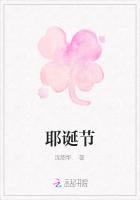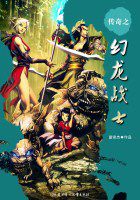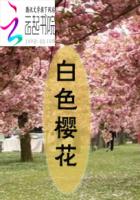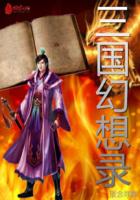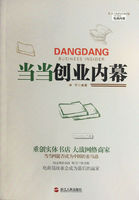He was a man of very great erudition, as his posthumous treatise on _The Light of Nature_ makes evident.
HENRY MORE was born at Grantham in 1614. From his earliest days he was interested in theological problems, and his precociousness in this respect appears to have brought down on him the wrath of an uncle.
His early education was conducted at Eton. In 1631 he entered Christ's College, Cambridge, graduated B.A. in 1635, and received his M.A.
in 1639. In the latter year he was elected a fellow of Christ's and received Holy Orders. He lived a very retired life, refusing all preferment, though many valuable and honourable appointments were offered to him.
Indeed, he rarely left Christ's, except to visit his "heroine pupil,"Lady CONWAY, whose country seat, Ragley, was in Warwickshire. Lady CONWAY(_ob_. 1679) appears to be remembered only for the fact that, dying whilst her husband was away, her physician, F. M. VAN HELMONT (1618-1699) (son of the famous alchemist, J. B. VAN HELMONT, whom we have met already on these excursions), preserved her body in spirits of wine, so that he could have the pleasure of beholding it on his return. She seems to have been a woman of considerable learning, though not free from fantastic ideas.
Her ultimate conversion to Quakerism was a severe blow to MORE, who, whilst admiring the holy lives of the Friends, regarded them as enthusiasts.
MORE died in 1687.
MORE'S earliest works were in verse, and exhibit fine feeling.
The following lines, quoted from a poem on "Charitie and Humilitie,"are full of charm, and well exhibit MORE'S character:--"Farre have I clambred in my mind But nought so great as love I find:
Deep-searching wit, mount-moving might, Are nought compar'd to that great spright.
Life of Delight and soul of blisse!
Sure source of lasting happinesse!
Higher than Heaven! lower than hell!
What is thy tent? Where maist thou dwell?
My mansion highs humilitie, Heaven's vastest capabilitie The further it cloth downward tend The higher up it cloth ascend;If it go down to utmost nought It shall return with that it sought."[1]
[1] See _The Life of the Learned and Pious Dr Henry More . . . by_RICHARD WARD, A.M., _to which are annexed Divers Philosophical Poems and Hymns_. Edited by M. F. HOWARD (1911), pp. 250 and 251.
Later he took to prose, and it must be confessed that he wrote too much and frequently descended to polemics (for example, his controversy with the alchemist THOMAS VAUGHAN, in which both combatants freely used abuse).
Although in his main views MORE is thoroughly characteristic of the school to which he belonged, many of his less important opinions are more or less peculiar to himself.
The relation between MORE's and DESCARTES' (1596-1650) theories as to the nature of spirit is interesting. When MORE first read DESCARTES'
works he was favourably impressed with his views, though without entirely agreeing with him on all points; but later the difference became accentuated.
DESCARTES regarded extension as the chief characteristic of matter, and asserted that spirit was extra-spatial. To MORE this seemed like denying the existence of spirit, which he regarded as extended, and he postulated divisibility and impenetrability as the chief characteristics of matter.
In order, however, to get over some of the inherent difficulties of this view, he put forward the suggestion that spirit is extended in four dimensions:
thus, its apparent (_i.e_. three-dimensional) extension can change, whilst its true (_i.e_. four-dimensional) extension remains constant;just as the surface of a piece of metal can be increased by hammering it out, without increasing the volume of the metal. Here, I think, we have a not wholly inadequate symbol of the truth; but it remained for BERKELEY(1685-1753) to show the essential validity of DESCARTES' position, by demonstrating that, since space and extension are perceptions of the mind, and thus exist only in the mind as ideas, space exists in spirit:
not spirit in space.
MORE was a keen believer in witchcraft, and eagerly investigated all cases of these and like marvels that came under his notice.
In this he was largely influenced by JOSEPH GLANVIL (1636-1680), whose book on witchcraft, the well-known _Saducismus Triumphatus_, MORElargely contributed to, and probably edited. MORE was wholly unsuited for psychical research; free from guile himself, he was too inclined to judge others to be of this nature also.
But his common sense and critical attitude towards enthusiasm saved him, no doubt, from many falls into the mire of fantasy.
As Principal TULLOCH has pointed out, whilst MORE is the most interesting personality amongst the Cambridge Platonists, his works are the least interesting of those of his school.
They are dull and scholastic, and MORE'S retired existence prevented him from grasping in their fulness some of the more acute problems of life. His attempt to harmonise catastrophes with Providence, on the ground that the evil of certain parts may be necessary for the good of the whole, just as dark colours, as well as bright, are essential to the beauty of a picture--a theory which is practically the same as that of modern Absolutism,[1]--is a case in point.
No doubt this harmony may be accomplished, but in another key.
[1] Cf. BERNARD BOSANQUET, LL.D., D.C.L.: _The Principle of Individuality and Value_ (1912).
RALPH CUDWORTH was born at Aller, in Somersetshire, in 1617.
He entered Emmanuel College in 1632, three years afterwards gained his B.A., and became M.A. in 1639. In the latter year he was elected a fellow of his college. Later he obtained the B.D. degree.
In 1645 he was appointed Master of Clare Hall, in place of the ejected Dr PASHE, and was elected Regius Professor of Hebrew. On 31st March 1647he preached a sermon of remarkable eloquence and power before the House of Commons, which admirably expresses the attitude of his school as concerns the nature of true religion. I shall refer to it again later.

